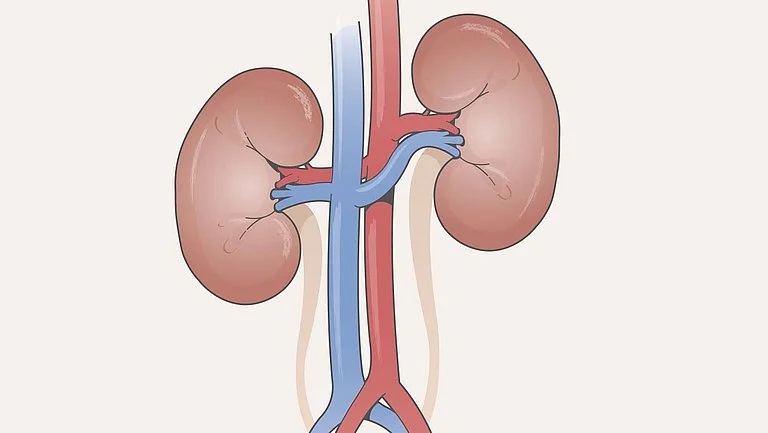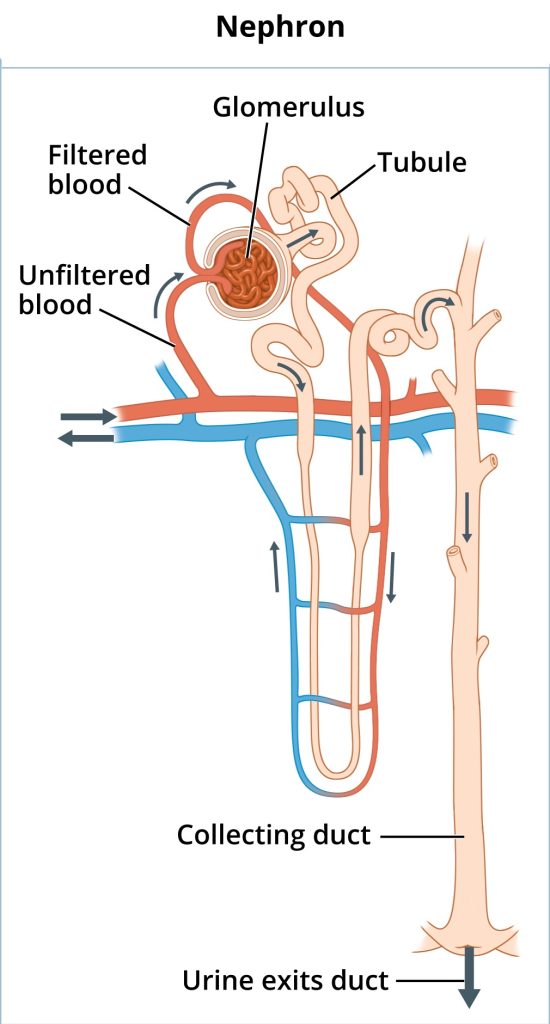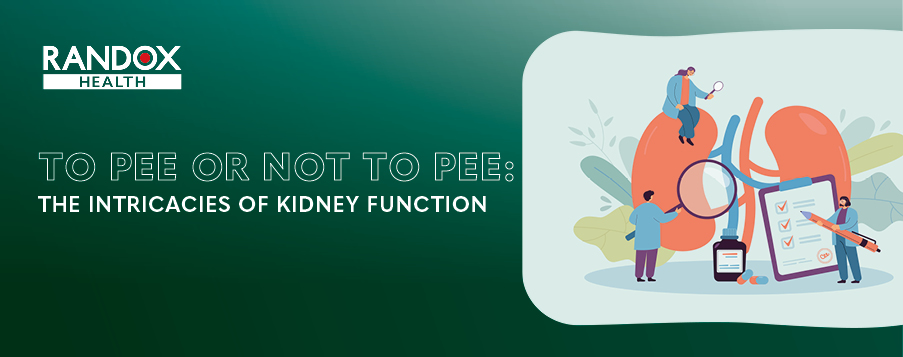15/09/2023
Kidneys, the remarkable pair of organs that perform a variety of crucial functions in our body, are too often overshadowed when discussing health. Yet, the role of healthy kidneys in filtering blood, eliminating waste through urine, maintaining electrolyte balance, and producing hormones necessary for bodily functions makes them indispensable. When kidneys aren’t functioning correctly, it affects the entire balance of the body, often leading to serious health complications. Understanding the importance of your kidneys and the conditions associated with these vital organs is paramount in reducing the high incidence of kidney-related diseases.
Your kidneys are two bean-shaped organs found below your ribcage, one on each side of your spine. The primary function of the kidneys is to filter waste products from your blood to maintain the balance of your body’s internal environment or, in other words, to maintain homeostasis. Filtered waste products are expelled from your body in urine. These processes are not only fundamental in regulating the levels of electrolytes, vitamins, and minerals in your body, but they also remove the excess acid that is produced by all cells in the body. Failing to maintain these homeostatic processes can cause many complications with your nervous system, muscles, and other tissues throughout your body. In this article, we’ll dive into the kidneys, why their proper function is so important, and the signs and symptoms of kidney disease you should be on the lookout for.
How Our Kidneys Function.

First, let’s take a brief look at how the kidneys work. Blood enters the kidneys through the renal artery. Inside each kidney is around 1 million filtering units, called nephrons. Each of these nephrons has a glomerulus, which acts as the filter, and a tubule.
Blood is passed through the glomerulus and differential pressure and chemical concentrations remove excess fluid and waste products from the blood. The tubule then reabsorbs anything useful still contained in the filtered solution such as water, glucose, or amino acids, sending them back into the bloodstream via the renal vein.
The remaining waste filtrate is converted to urine and excreted from the body1. Through this mechanism, your body can efficiently and effectively remove potentially harmful substances from your blood. In addition, your kidneys produce a host of hormones important in controlling blood pressure, producing red blood cells, and maintaining strong and healthy bones1.

Kidney Disease
Kidney disease encompasses a collection of diseases with differing severity. Kidney disease is defined as damage to the kidneys which causes a reduction or cessation of kidney function. Complete cessation of kidney, or renal, function is known as kidney failure. Early-stage kidney disease is asymptomatic as the unaffected kidney can usually pick up the slack. However, identifying kidney disease at this early stage can have massive advantages for treatment success.
Chronic Kidney Disease
Chronic Kidney Disease (CKD) is a long-term condition defined by damaged kidneys and a reduction in effective kidney function resulting in a build-up of waste products in the bloodstream2. Estimates claim between 11-19% of people in the UK and Ireland suffer from CKD3,4. Commonly caused by diabetes and high blood pressure, CKD often presents no symptoms until it reaches a more advanced stage, but as previously mentioned, the early it is detected the better. CKD can also be caused by autoimmune disorders, polycystic kidney disease and kidney stones.
When symptoms do occur, patients are encumbered with fatigue, swollen ankles, hands, or feet and difficulty concentrating. Additionally, CKD can wreak havoc on other vital bodily functions causing health conditions such as heart disease, stroke, nerve damage, anaemia, or bone disease2.
Beyond CKD is End Stage Renal Disease (ESRD). ESRD describes the phase where renal function has declined to the point where the kidneys cannot filter waste products from the blood without aid. This is commonly measured by the glomerular filtration rate. Symptoms of ESRD include pain in the kidney area, loss of appetite, nausea or vomiting, headaches and fatigue5.
ESRD may be caused by a variety of conditions including diabetes, high blood pressure, heart disease, drug abuse, blockages in the urinary tract, inflammation, and some genetic disorders. Treatment for ESRD takes the form of dialysis, where your blood is filtered externally by a machine. Otherwise, a kidney transplant is the final option for those who suffer from ESRD5.
Acute Kidney Injury
Acute Kidney Injury (AKI) is the often reversible, sudden reduction of kidney function and glomerular filtration rate. It is a common condition, displayed by up to 7% of hospital admissions and up to 30% of Intensive Care Unit admissions6. AKI can be categorised as follows: prerenal, intrinsic renal or postrenal.
Each of these categories describes the location of the cause of AKI; prerenal AKI is caused by a lack of blood supply to the kidney, commonly due to decreased cardiac output, blockage of the renal artery or in some cases, by medications like ACE inhibitors, a common treatment for high blood pressure. Intrinsic renal AKI is that which occurs within the kidney itself, directly affecting the glomerulus and tubule.
This may be caused by decreased blood flow, sometimes due to prerenal AKI, inflammation of the kidneys or glomerulus or an obstruction in the tubule. Finally, postrenal AKI is that which causes an obstruction in the filtration. Common causes include some medications, kidney stones, tumours, or blood clots6.
Kidney Infection
Kidney infections, which can affect one or both kidneys, are caused by bacteria or viruses. Although classified as urinary tract infections, kidney infections can lead to more serious and potentially permanent damage compared to some lower urinary tract infections7. They are most commonly caused by bacteria which ascend the urinary tract, through the bladder, finally reaching the kidneys.
Common symptoms of kidney infection include fever, chills, pain in the kidney area or lower back, nausea or vomiting and frequent urination7. Caught early, these infections are usually easily treated with antibiotics. Left to fester, the infections can lead to sepsis, kidney injury or kidney failure7.
Other Complications
Kidney disease can cause fluid buildup in the body, leading to swelling in the arms and legs, high blood pressure, or fluid in the lung8.
Kidney disease can cause heart disease, and heart disease can also cause kidney disease. When you have kidney disease, your heart must pump harder to get blood to your kidneys, which can cause heart disease. Heart disease is the most common cause of death in people who are on dialysis8.
Kidney disease can cause anaemia, which is a shortage of red blood cells. Anaemia can make you feel tired and weak9.
Kidney disease can cause gastrointestinal problems such as loss of appetite, nausea, vomiting, and weight loss9.
References
- National Institute of Diabetes and Digestive and Kidney Diseases. Your Kidneys & How They Work. Health Information. Published June 2018. Accessed August 2, 2023. https://www.niddk.nih.gov/health-information/kidney-disease/kidneys-how-they-work
- National Kidney Foundation. Chronic Kidney Disease (CKD) . National Kidney Foundation Inc. Published 2023. Accessed August 2, 2023. https://www.kidney.org/atoz/content/about-chronic-kidney-disease
- Hirst JA, Hill N, O’Callaghan CA, et al. Prevalence of chronic kidney disease in the community using data from OxRen: a UK population-based cohort study. British Journal of General Practice. 2020;70(693):e285-e293. doi:10.3399/bjgp20X708245
- Stack AG, Casserly LF, Cronin CJ, et al. Prevalence and variation of Chronic Kidney Disease in the Irish health system: initial findings from the National Kidney Disease Surveillance Programme. BMC Nephrol. 2014;15(1):185. doi:10.1186/1471-2369-15-185
- Hashmi MF, Benjamin O, Lappin SL. End-Stage Renal Disease.; 2023.
- Goyal A, Daneshpajouhnejad P, Hashmi M, Bashir K. Acute Kidney Injury . In: StatPearls [Internet]. StatPearls Publishing ; 2023.
- NHS. Kidney Infection . Crown Copyright . Published January 6, 2021. Accessed August 2, 2023. https://www.nhs.uk/conditions/kidney-infection/
- Mayo Clinic. Chronic Kidney Disease. Chronic Kidney Disease Care. Published September 3, 2021. Accessed August 2, 2023. https://www.mayoclinic.org/diseases-conditions/chronic-kidney-disease/symptoms-causes/syc-20354521
- Bello AK, Alrukhaimi M, Ashuntantang GE, et al. Complications of chronic kidney disease: current state, knowledge gaps, and strategy for action. Kidney Int Suppl (2011). 2017;7(2):122-129. doi:10.1016/j.kisu.2017.07.007



